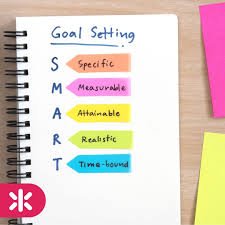As the end of 2024 approaches, it’s a perfect time to pause, reflect on the year gone by, and set clear intentions for the year ahead. The end-of-year period is often filled with celebration, but it also offers an opportunity to reflect on personal growth, accomplishments, and areas for improvement. By engaging in thoughtful reflection and goal-setting, you can create a roadmap for 2025 that aligns with your values and aspirations.
In this article, we’ll explore how to reflect on the past year, set meaningful goals, and make a plan to ensure that 2025 is a year of growth and fulfillment.
Why Reflection Matters: Understanding the Power of Looking Back
Before setting new goals for the upcoming year, it’s important to take a step back and reflect on the year that has passed. Reflection allows you to assess your achievements, learn from challenges, and gain clarity on what you truly want to focus on in the future.
The Benefits of Reflection:
- Increased Self-Awareness: Taking the time to reflect on your actions, decisions, and emotions throughout the year helps you understand who you are and what truly matters to you.
- Celebrating Successes: Reflecting on accomplishments—big or small—gives you the opportunity to recognize and appreciate the hard work and dedication you’ve put into the past year.
- Learning from Mistakes: Reflection allows you to examine the areas where things didn’t go as planned, offering valuable lessons for personal growth.
- Clarifying Priorities: Reflecting on what felt fulfilling and meaningful during the year can help clarify your priorities and focus for the upcoming year.
How to Reflect on 2024: Key Questions to Ask Yourself
Effective reflection involves asking the right questions. This will help you gain insights into your experiences and identify patterns in your behavior, thoughts, and feelings. Here are some key questions to guide your reflection process:
Personal Growth:
- What were the most significant lessons I learned in 2024?
- What personal achievements am I most proud of?
- In which areas of my life did I grow the most?
- How did I manage stress or challenges throughout the year?
Relationships:
- How have my relationships with family, friends, and colleagues evolved in 2024?
- What positive connections did I nurture this year?
- Were there any relationships that needed more attention or care?
- How can I be a better listener or communicator in 2025?
Career and Professional Life:
- What were my key career milestones in 2024?
- Did I meet my professional goals? If not, what barriers did I face?
- What skills or knowledge did I acquire this year, and how can I build on them in 2025?
- How can I improve my work-life balance moving forward?
Health and Well-Being:
- How did I prioritize my physical and mental health in 2024?
- What habits helped me feel healthy and energized, and which ones held me back?
- Did I create a sustainable wellness routine? If not, what changes do I want to make?
- How can I practice more self-care in 2025?
Finances:
- How did my financial situation evolve in 2024?
- Did I stick to a budget, or did I face any financial challenges?
- What lessons did I learn about managing money this year?
- How can I improve my financial health in the upcoming year?
Goal-Setting for 2025: Crafting Intentions with Clarity
After reflecting on the past year, the next step is setting clear and actionable goals for 2025. Goal-setting is not just about writing down resolutions, but about creating a roadmap that guides your actions and decisions. To ensure your goals are achievable, they should be specific, measurable, and aligned with your values.
How to Set Meaningful Goals:
1. Break Your Goals Into Categories
- Personal Goals: These goals might focus on self-improvement, such as reading a certain number of books, starting a new hobby, or building a better daily routine.
- Professional Goals: Career-oriented goals may include gaining new skills, seeking a promotion, or improving work productivity.
- Health Goals: These goals should focus on both physical and mental well-being, such as exercising regularly, eating more whole foods, or practicing mindfulness.
- Financial Goals: These might involve saving a certain percentage of your income, paying off debt, or investing for the future.
- Relationship Goals: Consider how you want to deepen your connections with loved ones or build new friendships in the year ahead.
2. Use the SMART Framework
A proven method for setting goals is the SMART framework, which stands for:
- Specific: Make your goals as detailed as possible. For example, instead of saying, “I want to be healthier,” specify “I want to exercise three times a week for 30 minutes each session.”
- Measurable: Determine how you’ll track your progress. For example, you could track the number of books you read or the amount of money you save.
- Achievable: Set goals that are challenging yet realistic. Aim for progress, not perfection.
- Relevant: Make sure your goals align with your values and long-term aspirations.
- Time-bound: Set a deadline for achieving your goals, whether it’s within the next three months or by the end of the year.
Building Habits for Success: Turning Goals into Action
Once your goals are set, it’s time to turn them into actionable steps. The key to long-term success lies in consistent effort and habit formation. Setting specific milestones and breaking down your goals into smaller, more manageable tasks will help you stay on track throughout the year.
Steps for Turning Goals into Habits:
- Start Small: Focus on creating small, positive habits that will compound over time. For instance, if your goal is to exercise more, begin by committing to just 15 minutes of exercise a day, then gradually increase the time as the habit becomes part of your routine.
- Track Progress: Keep track of your progress through journaling or an app. This will not only help you stay accountable but also boost motivation as you see how far you’ve come.
- Stay Flexible: Life is unpredictable, and sometimes goals need to be adjusted. If you face setbacks, reevaluate your plan and find alternative paths to reach your destination.
- Celebrate Milestones: Acknowledge your achievements along the way. Celebrating small victories will keep you motivated and remind you of the progress you’re making
Overcoming Obstacles: Navigating Challenges in 2025
While setting goals and establishing habits is crucial, it’s equally important to prepare for obstacles and challenges that may arise. Whether it’s unexpected setbacks, time constraints, or self-doubt, having strategies in place will help you stay focused and resilient.
Strategies for Overcoming Obstacles:
- Reframe Challenges: Instead of viewing obstacles as failures, reframe them as opportunities to learn and grow.
- Set Realistic Expectations: Understand that progress takes time and setbacks are part of the process. Adjust your expectations to avoid frustration and burnout.
- Build a Support System: Surround yourself with people who encourage and motivate you. Whether it’s friends, family, or colleagues, having a solid support network can make a huge difference when facing challenges.
- Practice Self-Compassion: Be kind to yourself when things don’t go as planned. Self-compassion helps you bounce back from setbacks without being too harsh on yourself.
Conclusion: Embracing the New Year with Purpose
As we approach the end of 2024, take time to reflect on the highs and lows of the year, and use that insight to set purposeful goals for 2025. Whether you’re focused on personal growth, career advancement, health, or relationships, goal-setting allows you to create a clear vision for the year ahead.
Remember, the key to success lies not only in setting goals but also in building the habits and resilience needed to achieve them. With a strong plan, a positive mindset, and unwavering determination, 2025 can be your best year yet.
So, take a deep breath, set your intentions, and step into the new year with confidence, knowing that you have the power to make it a year of growth, achievement, and fulfillment.

















